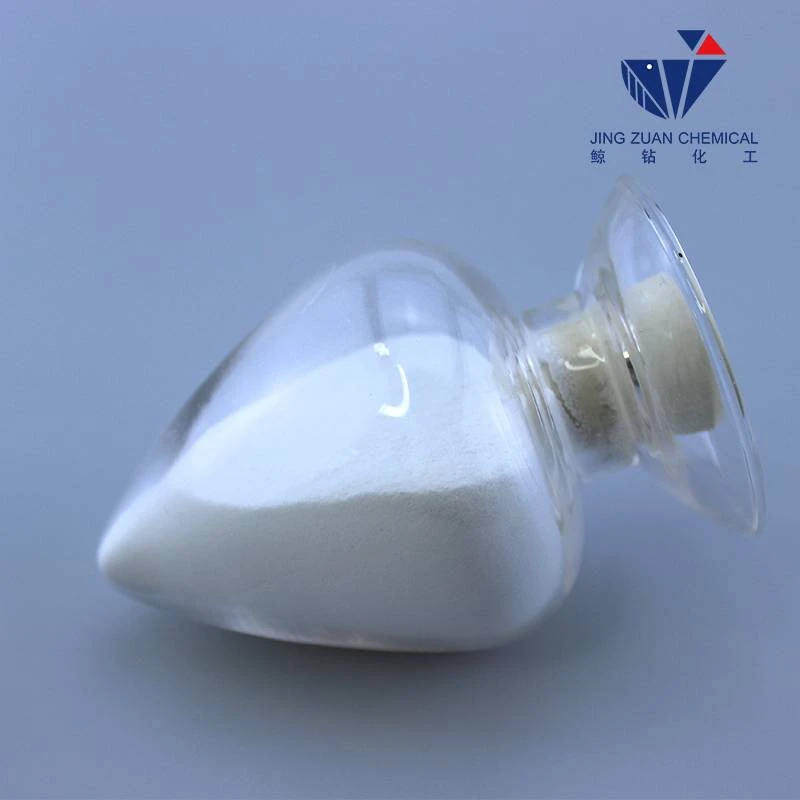
Dec . 28, 2024 22:40 Back to list
Exploring the Properties and Applications of Hydroxyethyl Cellulose in Various Industries
Understanding Hydroxyethyl Cellulose (HEC) Properties, Applications, and Benefits
Hydroxyethyl cellulose (HEC) is a water-soluble polymer derived from cellulose, a natural polymer that constitutes the cell wall of plants. The synthesis of HEC involves the etherification of cellulose, resulting in a compound that possesses unique properties making it widely used across various industries. This article will explore the characteristics, applications, and advantages of HEC, shedding light on its significance in both industrial and consumer sectors.
Chemical Structure and Properties
HEC is characterized by its unique chemical structure. It consists of a backbone of β-(1,4)-glucopyranose units derived from cellulose, with hydroxyethyl groups (-CH2CH2OH) attached to some of the hydroxyl groups of the cellulose molecule. This modification increases the solubility of cellulose in water, allowing HEC to dissolve easily and form viscous solutions.
Some of the most notable properties of HEC include its high viscosity, thermal stability, and ability to enhance the stability of emulsions. HEC solutions are pseudoplastic, meaning their viscosity decreases under shear stress, making them useful in applications where ease of application is required. Furthermore, HEC is relatively inert chemically, making it a suitable additive in various formulations.
Applications of Hydroxyethyl Cellulose
HEC finds applications in multiple industries, including pharmaceuticals, cosmetics, food, construction, and oil drilling.
1. Pharmaceuticals In the pharmaceutical industry, HEC is widely used as a thickening agent in the formulation of gels, creams, and ointments. Its ability to provide a smooth texture and enhance the stability of active ingredients makes it a valuable component in topical formulations. Additionally, HEC is employed in controlled-release drug delivery systems due to its swelling properties, which help regulate the release of medication over time.
2. Cosmetics and Personal Care The cosmetic industry utilizes HEC for its cosmetic conditioning properties and as a thickener in products such as shampoos, lotions, and creams. HEC helps improve the texture, feel, and appearance of the products, imparting a pleasant application experience for consumers. Its moisture-retaining properties also contribute to skin hydration, making it a desirable ingredient in skincare formulations.
hydroxyethyl cellulose hec

3. Food Industry In the food sector, HEC is used as a food additive, particularly as a thickening and stabilizing agent in sauces, dressings, and dairy products. It helps prevent ingredient separation and enhances the overall texture of food products, contributing to consumer satisfaction. Additionally, HEC is recognized as a safe additive, approved by various regulatory bodies for use in food applications.
4. Construction In the construction industry, HEC is utilized in cement and mortar formulations to enhance workability and improve adhesion. HEC acts as a water-retaining agent, preventing the rapid drying of cementitious materials and allowing for easier application and finishing. This property is particularly beneficial in hot and dry climates where moisture evaporation can be a challenge.
5. Oil and Gas HEC is also employed in the oil and gas industry as a drilling fluid additive. It helps to increase the viscosity of drilling fluids, providing better hole cleaning and reducing fluid loss in porous formations. The use of HEC in this context contributes to improved drilling efficiency and safety.
Benefits of Hydroxyethyl Cellulose
The advantages of using HEC are manifold. Its ability to enhance viscosity without significantly altering the properties of other ingredients allows for versatility in formulation. Additionally, HEC is non-toxic and biodegradable, aligning with growing environmental concerns and consumer preferences for sustainable products. Its thermal stability ensures that it retains its properties under varying temperature conditions, making it suitable for diverse applications.
Furthermore, HEC's cost-effectiveness and compatibility with a wide range of substances make it an appealing choice for formulators. Its performance benefits, combined with extensive safety profiles, contribute to its popularity across different industries.
Conclusion
Hydroxyethyl cellulose (HEC) is a multifunctional ingredient with a broad range of applications across various sectors. Its unique properties, including solubility, viscosity enhancement, and stability, make it indispensable in pharmaceuticals, cosmetics, food, construction, and beyond. As industries continue to evolve and sustainability becomes more critical, HEC stands out as a safe and effective option that meets modern demands. Understanding and leveraging the capabilities of HEC can lead to innovative formulations that cater to both business and consumer needs.
-
Why HPMC is a Key Additive in Wall Putty Formulations
NewsAug.05,2025
-
Redispersible Powder in Decorative Renders: Function Meets Finish
NewsAug.05,2025
-
Redispersible Powder for Interior Wall Putty: Smooth Results Every Time
NewsAug.05,2025
-
HPMC’s Water Retention Capacity in Dry Mortar Applications
NewsAug.05,2025
-
HPMC Factory Contributions to Liquid Detergents
NewsAug.05,2025
-
How HPMC Factory Products Change Detergent Textures
NewsAug.05,2025







